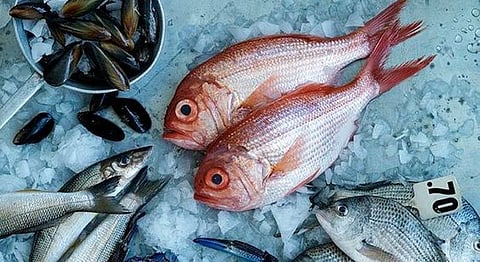
- HOMEGROWN WORLD
- #HGCREATORS
- #HGEXPLORE
- #HGVOICES
- #HGSHOP
- CAREERS
- ABOUT US
- CONTACT US

If you, like me, were privy to the superstition that eating fish in the rains will give you a stomach upset, you’ll be happy to know that we were not entirely duped. Like most superstitions have their foundations in sound, rational thought, we see that this one does too. For the most part, many ocean-beings lay their eggs in the monsoon and need that time to keep their young alive, which is why they say not to each fish/seafood at this time. Now, if you’re even the slightest bit committed to eating in a sustainable, ocean friendly manner we’ve found just the thing to help you in these months to come.
Know Your Fish is a voluntary initiative that promotes ocean-friendly living with a calendar that tells you which months are okay to consume a particular fish, and which are not. The team comprises of researchers who love the ocean and seafood, and are on a mission to encourage people to make informed choices about the food they eat. This calendar is especially relevant for people living along the coasts of Maharashtra, Gujarat, Goa, Karnataka and Kerala. Currently, the calendar marks the viable consumption for Kingfish, Mackrel, Squid, Barramundi, Silver Pomfret, Prawn and Bombay Duck to name a few.
Their recommendations are based off of two parameters; sparing the fish during their breeding season and early life stages, and collateral damage control. For instance, “To know when the Kingfish breeds we collated all the available scientific literature on kingfish breeding on the west coast of India. Most reports indicate that kingfish breed during May to November and most of the breeding occurs between October and November. So we recommend that the months of October and November are definitely not a good time to eat Kingfish,” they said on their website.
When it comes to collateral damage, they say that “Seer fish is caught by methods like large gill nets and hook-and-line. These methods involve a lot of by-catch or secondary catch of sharks, along with the targeted seer fish. Literature shows that most shark species on west coast of India have a breeding period covering March, April and May. This would mean that eating Seer fish in March, April and May, will risk sharks as unintentional by-catch.”
While there is a lot to do in the way of spreading this information until the fishing itself is curbed, this is the least we can do as consumers to ensure the ecological viability of the ocean and it’s fish. Reducing demand is the strongest card we have to hold, and we must use it at every given opportunity.
To view the calendar, click here.
